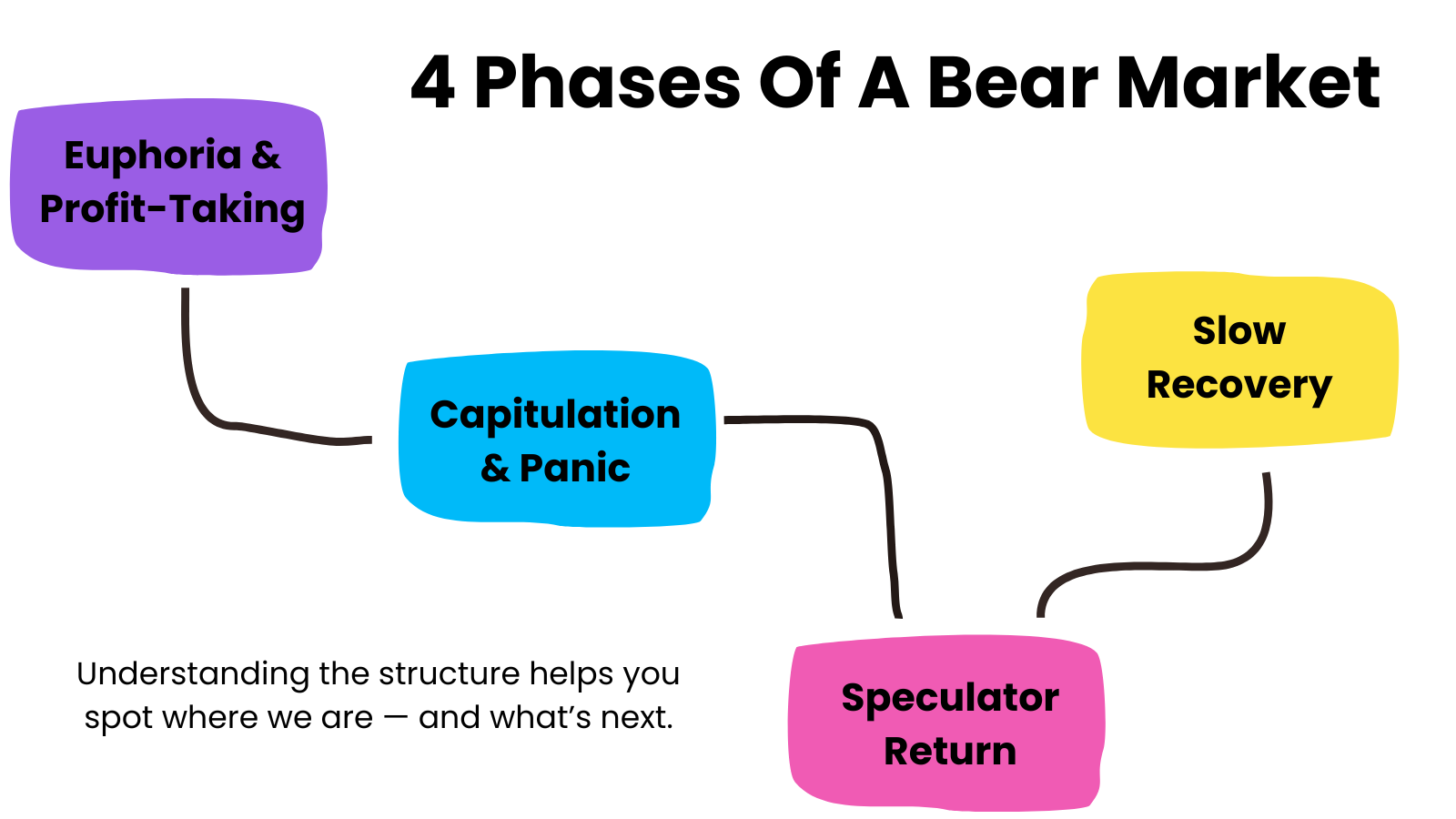Bear Market — Explained
May 05, 2025
What It Means, Why It Happens, and How to Win Anyway
🖥️ Reading time: 5 minutes
When markets tumble and headlines scream panic, seasoned investors don’t run — they reposition. Whether you're building a portfolio or just trying to keep your cool during economic chaos, understanding a bear market is like owning the playbook during a fourth-quarter comeback.
Let’s break it down.
📉 What Exactly Is a Bear Market?
A bear market is when asset prices (typically stocks) fall 20% or more from recent highs and stay there for a while. But it's more than just a number. It’s a mood, a mindset, and a moment when investors start to sell. These downturns often come with:
- Investor pessimism
- A weak or slowing economy
- Large-scale liquidations
- A drop in business profits and productivity
Unlike a quick dip (aka a correction), bear markets are more drawn out and psychologically draining. That’s what makes them dangerous… and ripe with opportunity. Here are three things I would do in a recession.
🧠 The Psychology Behind Bear Market Panic
Stock prices mirror expectations. When profits disappoint or growth slows, fear takes over. Investors start selling to avoid further losses, triggering a chain reaction.
But here’s the twist: a bear market doesn’t always start with a crash. Common triggers include:
- Recessions or sluggish growth
- Bursting bubbles (dot-com, housing, crypto… take your pick)
- Pandemics, wars, or global crises
- Rate hikes or significant policy changes
⏳ How Long Do Bear Markets Last?
The average bear market lasts 292 days — less than a year. There’s no guarantee that the next bear market will be as swift, but history tells us that recovery starts within a year.

📊 Which Famous Bear Markets Do You Remember?
- March 2020 (COVID Crash): The Dow plummeted 38% in just over a month.
- 2007–2009 (Global Financial Crisis): The S&P 500 dropped 50%.c
- Dot-Com Bubble (2000–2002): Wiped out nearly 49% of the S&P 500.
- Great Depression (1929): The original bear — brutal and historic.
🐂 Bear vs. Bull: What’s the Real Difference?
It’s all about direction and momentum. A bull charges upward with its horns. A bear swipes downward with its paws. That’s where the names come from. Cool, right?
- Bull Market: Prices climb. Confidence soars.
- Bear Market: Prices fall. Fear reigns.
💡 Should You Buy in a Bear Market?
- Target quality stocks at discounted prices
- Set realistic purchase prices
- Diversify your investments
- Maintain your long-term investment strategy (Mine? ETFs!)
🚫 Should You Sell?
Generally, no. The average bear market lasts 292 days, less than a year. Most investors are better off riding it out. The worst losses often come from panic selling, not price drops.
🧓 What If You’re Retiring During a Bear Market?
It’s not ideal — but it’s not doom. Patience pays. Bear markets pass.
- Stay diversified (think: bonds, cash, and defensive stocks)
- Avoid panic selling
- Rebalance, don’t retreat
- Tap into safer buckets first (so you’re not selling stocks at a loss)
🧭 Are Bear Markets a Test?
Yes — they test your patience, your strategy, and your belief in long-term growth.
But for the prepared? They’re a chance to build wealth, rebalance smartly, and walk into the next bull market stronger than ever.
✅ Join My Beginners Investing Master Class
✅ Take advantage of my FREE Financial Freedom Faster eBook
Patience pays. Don't panic in a bear market.
— Steve
Disclaimer:
The following article is strictly the opinion of the author and is not to be considered financial/investment advice. CTL Community LLC and the author of this article do not claim to be a registered financial advisor (RIA) or financial advisor. Please visit our terms of service and privacy policy before reading this article. "Call to Leap may earn affiliate commissions from the links mentioned. Call to Leap is part of an affiliate network and receives compensation for sending traffic to partner sites such as ImpactRadius, CardRatings, MyBankTracker, and more."
Read more Curated Articles

